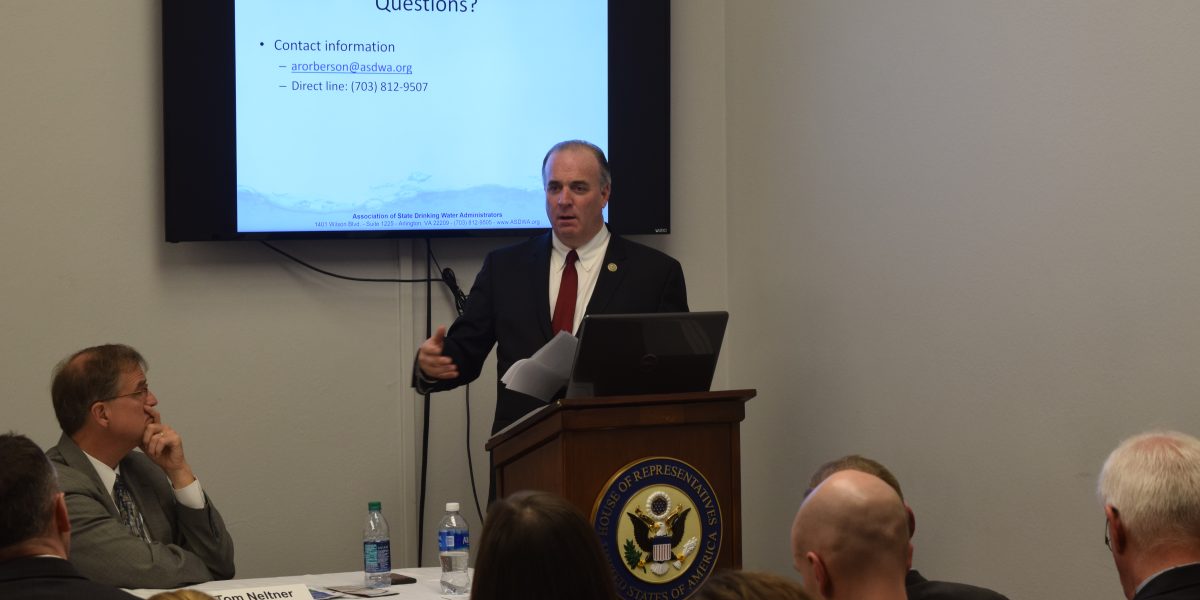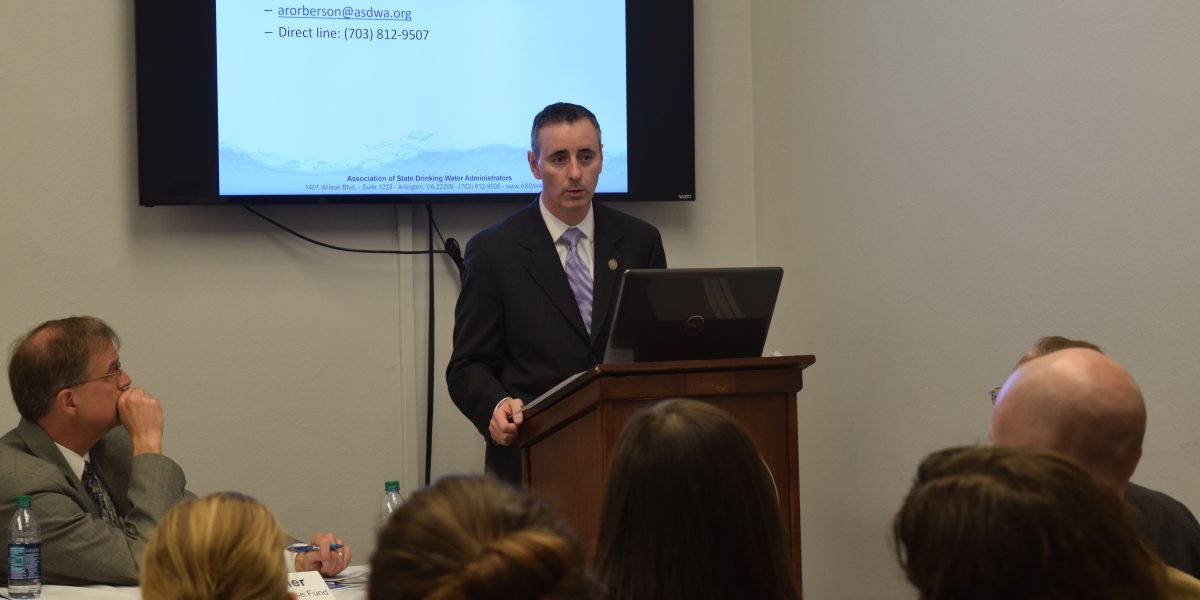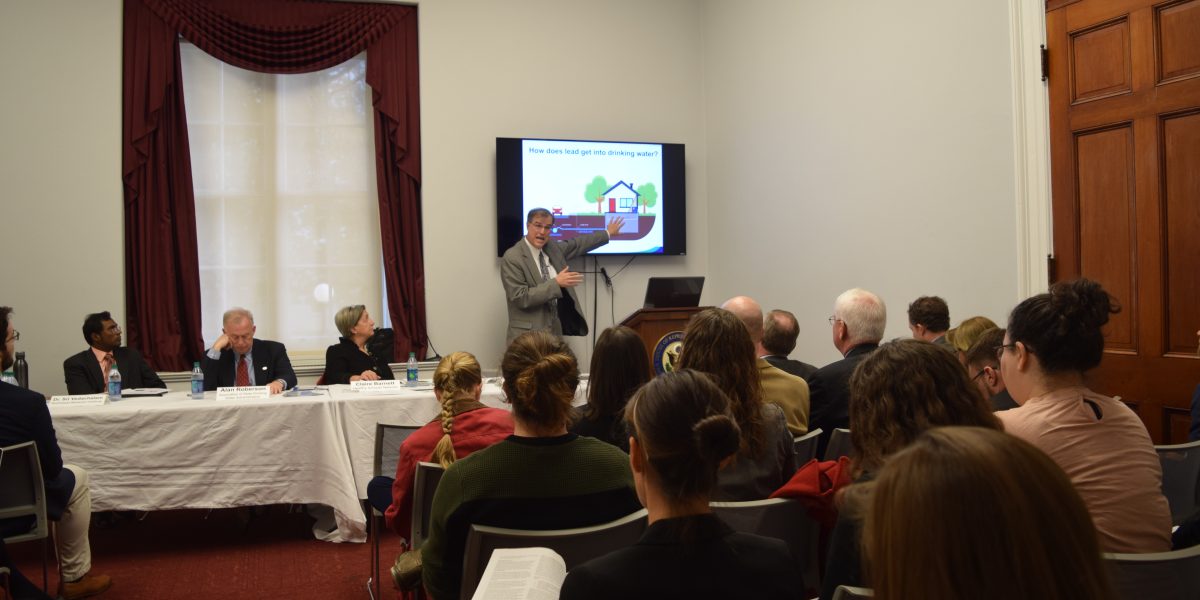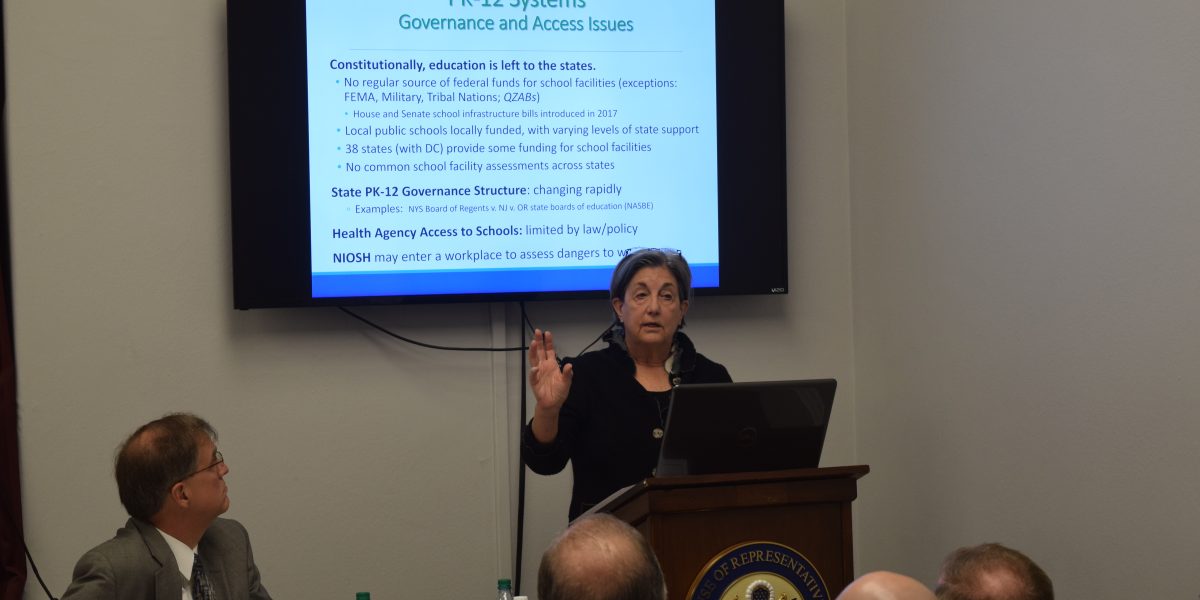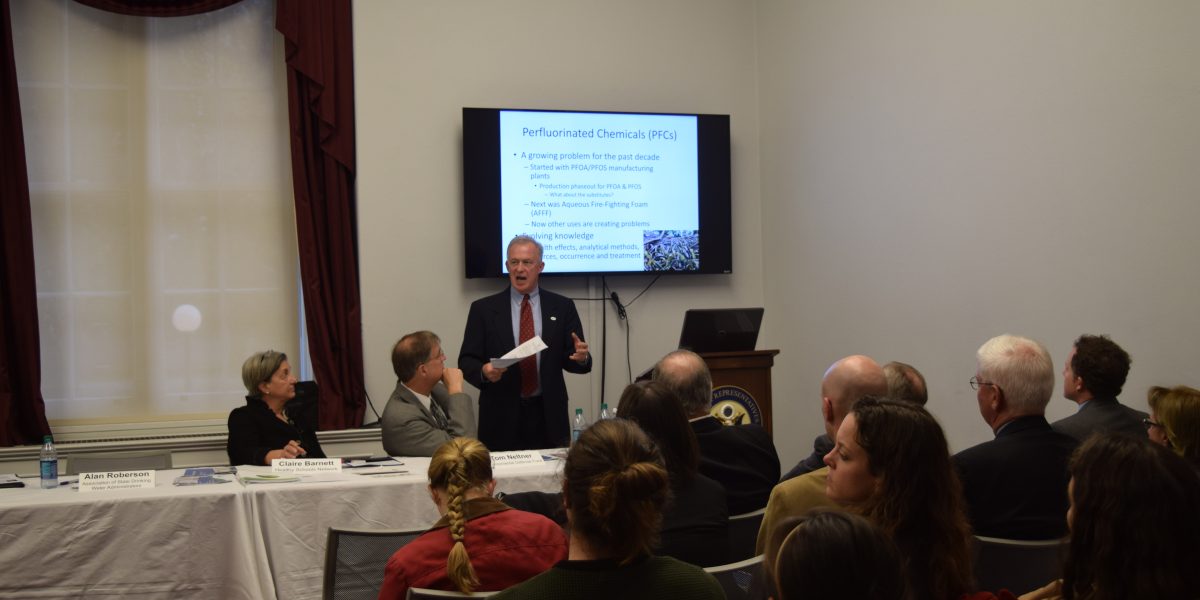The Northeast-Midwest Institute explored lead, PFCs, and other threats to safe drinking water in a Capitol Hill briefing to Congressional staffers and regional stakeholders on December 5, 2017. Hosted in collaboration with Congressman Paul Tonko (NY-20), the briefing featured remarks from Congressmen Brian Fitzpatrick (PA-08) and Dan Kildee (MI-05). The briefing’s panel was composed of three experts on various aspects of the topic. With two-thirds of lead service lines being in the Northeast and Midwest, each panelist stressed the importance of taking action to keep drinking water safe and drinking water infrastructure well-maintained and lead-free.
In his remarks, Congressman Dan Kildee of Flint, MI highlighted how common and dangerous aging water infrastructure across the country is, stating: “The issues in Flint are…not some sort of extreme exception, not some sort of an anomaly. It’s basically a warning that if we don’t get this right—if we don’t figure out a way to reprioritize reinvestment in these essential systems—what happened in my community will happen all over the country.”
Congressman Brian Fitzpatrick (PA-08) emphasized the impact of perfluorinated chemicals (PFCs) in ground water in his district and in other communities with military installations, highlighting two recent amendments passed in the National Defense Authorization Act of 2018 that would fund a 5-year study on the health impacts of PFCs and direct the Department of Defense to find PFC-free foams to use.
A full, time-stamped audio recording of the briefing can be found here.
The slides used during the briefing can be found here.
More information about the panelists can be found here.
Tom Neltner, Chemicals Policy Director at the Environmental Defense Fund, reviewed the danger posed by lead to infants and toddlers, as well as the continued pervasiveness of lead service lines—one-half of which are located in just twelve Northeast-Midwest states. He also reviewed the highly varied approaches state and local governments have taken to assessing the inventory of lead service lines and adopting measures and goals aimed at replacing them entirely.
Claire L. Barnett, Executive Director of the Healthy Schools Network, discussed the dangers of aging PK-12 schools, which expose children and teenagers to toxins through both air and water. Ms. Barnett examined how decades of deferred maintenance of schools is compounded by gaps in federal regulation of municipal water systems in schools. She also noted that some states are becoming more proactive in testing for and combatting toxins in schools.
J. Alan Roberson, Executive Director of the Association of Drinking Water Administrators (ASDWA), explored the uncertain near-future for federal funding and regulation of drinking water, pointing to the uncertainty surrounding President Trump’s deregulatory agenda, funding of regulatory agencies such as the EPA, and the Congressional agenda. He also examined how currently unregulated algal toxins and perfluorinated chemicals are becoming increasingly pervasive, even as the science on the acceptable levels of these contaminants is still evolving.
Dr. Sri Vedachalam, Director of the Northeast-Midwest Institute’s Safe Drinking Water Research and Policy Program, moderated the briefing.
This briefing was hosted by the Safe Drinking Water Research and Policy Program (SDWRPP), which works toward solving imminent, critical drinking water issues, while also building regional and national awareness of the need for solving complex water issues. Through the development of scientific, non-partisan, and independent research and policy analysis, the program seeks to use objective data findings to inform and provide technical assistance and education to support local and regional drinking water policy improvements.
The Northeast-Midwest Institute is a Washington, D.C.-based, nonprofit, nonpartisan public policy organization committed to economic vitality, environmental quality, and regional equity for the 18 states of the Northeast and Midwest.
